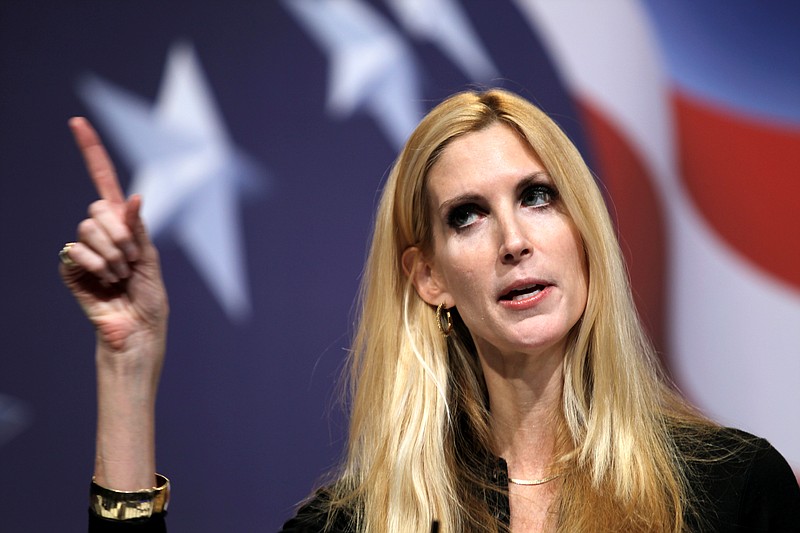If you've bitten your tongue before giving your opinion to counter that of some bloviating loudmouth who is not afraid to give his or hers, you're not alone.
And if your opinions are conservative, you've done it a lot more often.
That's what the truly evil cancel culture has exacerbated, though the political climate had been trending that way before the recent rash of receiving consequences for your political beliefs became so prevalent.
A recent Cato Institute survey says nearly two-thirds (62%) of Americans say the political climate prevents them from espousing their own beliefs because someone might find them offensive. And that number has risen 4% in the last three years.
The most glaring example of this was the 2016 presidential election when millions of Americans wouldn't tell pollsters for whom they were voting, or wouldn't tell them accurately. The result was that almost no one forecast the upset win by Donald Trump.
That upset, and the visceral hate leveled on the president since by Democrats, Hollywood, academia and the national media, has made more Americans mum.
But, according to the Cato survey, majorities of Republicans (77%), independents (59%) and Democrats (52%) all feel less free to say what they like.
It's a sad lament for a country built on the freedoms of speech.
Ironically, Trump's willingness to say what he thought - the helpful things, not the hurtful ones - are what drew many Republicans to his camp in 2016. They were used to Republicans unwilling to fight back when faced with popular culture aligned against them.
It's also what makes the left hate him so. They were used to the GOP not fighting back, not willing to stand up for what they believe, not willing to confront Democrats on their lies. So when one had the temerity to say what he thought about their stances, it infuriated them.
The Cato survey speaks to that. The further left you are on the political scale, the more you believe you can express yourself. While 52% of all Democrats feel the need to censor their political speech, 58% of strong liberals say they feel free to say what they believe. Not coincidentally, it's the far left flank of the Democratic party that now is in firm control of the party.
So when that wing of the party speaks, it can be fairly certain it will have the backing of Hollywood, academia and the media. It's much easier to freely express yourself if those opinions will be popularly parroted, whether they are the beliefs of a majority of the American people or not.
The survey shows that large majorities of Hispanics (65%), whites (64%), men (65%), women (59%), Americans with incomes of more than $100,000 (60%), people with incomes under $20,000 (58%), people over age 65 (66%), people under age 35 (55%), religious (71%) and non-religious (56%) people all are reticent about expressing their opinions.
If those results weren't scary enough, up to 50% of liberals believe a business executive should be fired for donating to the Trump campaign. And 36% of strong conservatives believe a similar business executive should be sacked if they give to the campaign of presumed Democratic presidential nominee Joe Biden.
Personal political giving, unless done through political action committees, is public, due to campaign finance laws, so the so-called outing of political givers is easy to do. But that doesn't bolster the argument that one's political donation should have anything to do with their employment status.
Not surprisingly, the group with the least political understanding and experience - Americans under 30, the same group who make up the largest part of recent protesters - is the group most likely to suggest firings for political giving to presidential candidates. Forty-four percent are OK with firing an executive if they give to Trump, while 27% say an executive could be terminated if they give to Biden.
But almost a third of the electorate - 32% - is worried that their views could have an adverse effect on their career. Thirty-four percent of conservatives hold that belief, but so do 31% of liberals and 30% of moderates.
The most worried? American with post-graduate degrees (44%), Hispanics (38%), representatives of households earning less than $20,000 a year (36%), men (35%) and college graduates (34%) say they fear for their jobs if their politics views are known.
If you're young and Republican, you feel especially vulnerable. A majority (51%) of respondents of Republicans under 30 said they're afraid their views can harm their careers.
The Cato Institute doesn't attempt to explain why people are feeling more and more inhibited about expressing their political beliefs, but it is a trend that predates the Trump era. Yet the Trump era, with a conservative president who will express his opinion on one side and liberal culture not used to having its opinions questioned on the other has lengthened the trend.
